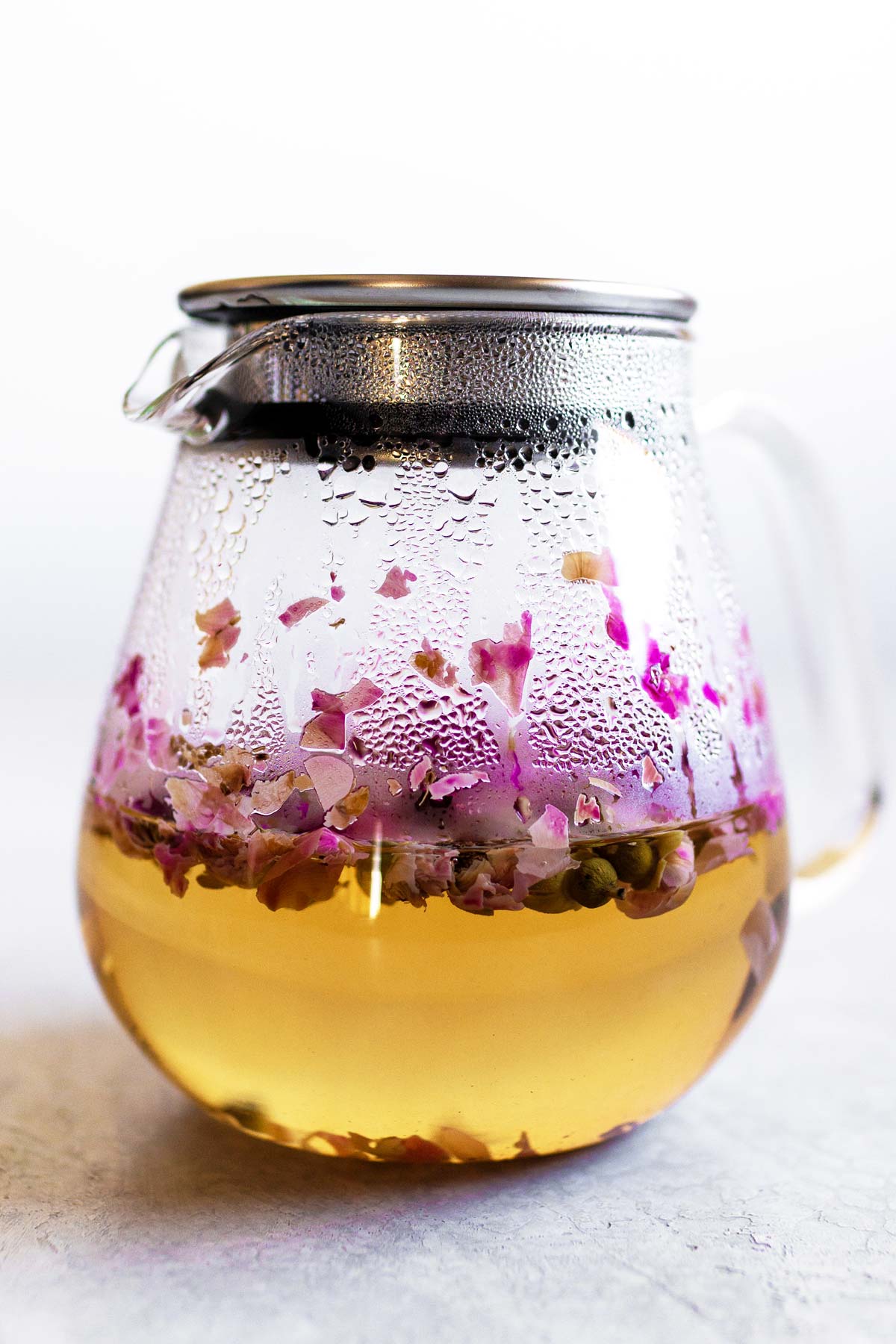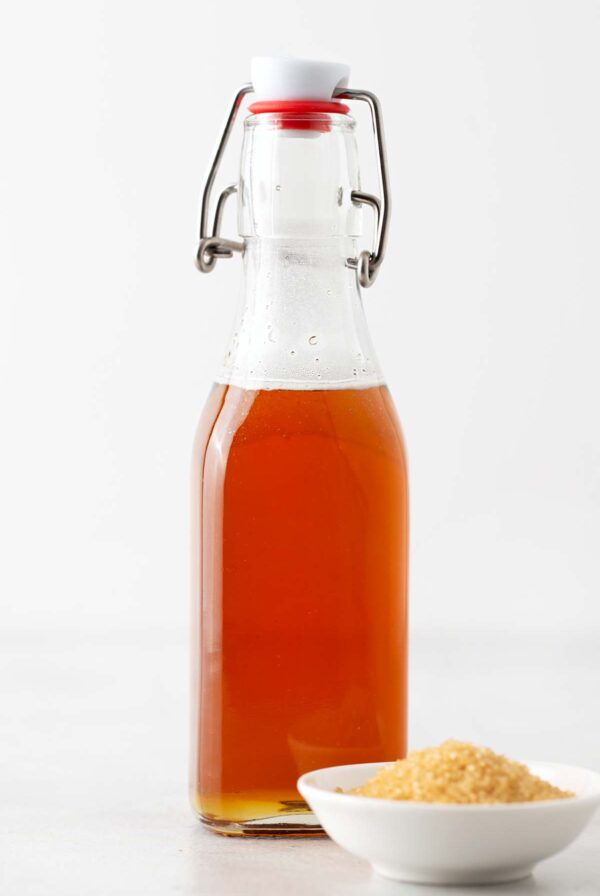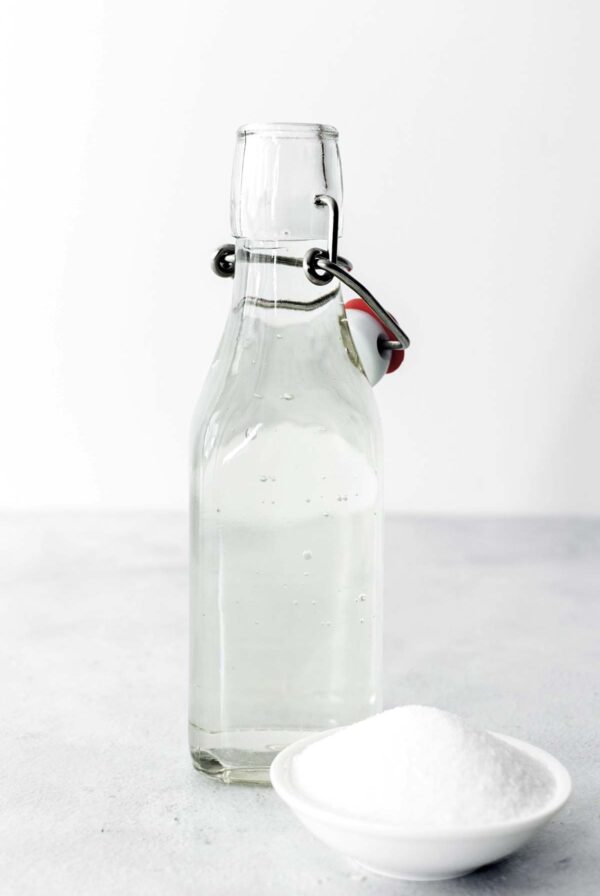5 Benefits of Drinking Rose Tea
on Apr 06, 2024
This post may contain affiliate links. As an Amazon Associate, I earn from qualifying purchases.
See all the ways caffeine-free rose tea is good for you, from how it manages inflammation to supporting immune function.

What Is Rose Tea?
Rose tea is made by steeping rose petals or buds in water. It’s an herbal drink and contains no caffeine.
Rose tea is sometimes made with black tea or green tea, which is a caffeinated drink so make sure to check the ingredients if you’re sensitive to caffeine.
RELATED: Rose Iced Tea
5 Rose Tea Health Benefits
1. Offers Antioxidants
According to research, rose petals are high in antioxidants such as flavonoids, carotenoids, and anthocyanins.
Antioxidants are beneficial molecules that protect cells from damage, so when you drink rose tea, you’ll consume plenty of antioxidants.
Fun fact: Anthocyanins, which are found in rose petals, are also plant pigments. They’re responsible for the red-pink color of roses.
2. Manages Inflammation
Antioxidants, like the ones found in rose tea, also reduce inflammation. They work by acting on cellular reactions involved in inflammation.
This will help protect your cells from damage and reduce your risk of chronic disease.
3. Supports Immune Function
Another rose tea benefit involves the immune system. The petals contain vitamin C, a nutrient that’s important for a healthy immunity.
Vitamin C works by supporting white blood cells called leukocytes. These cells protect your body by fighting disease-causing germs.
4. Contains No Caffeine
Rose tea is caffeine-free and it’s an ideal option if you’re sensitive to caffeine or want to drink tea before bed.
5. Promotes Calmness
Rose has been shown to have a relaxing effect on the body.
What’s more, the petals have a lovely, calming scent. This can make the act of drinking rose tea relaxing and soothing.
Side Effects of Rose Tea
In general, rose tea is considered safe. There are little to no reports on side effects related to rose tea.











